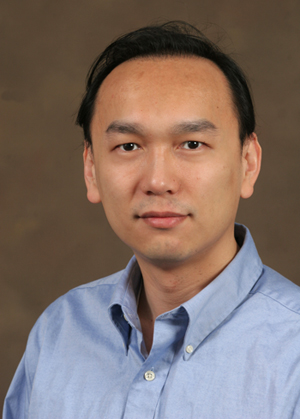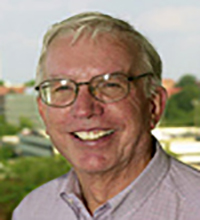
Andy Wang, an assistant professor of computer science at The Florida State University who calls himself a “digital plumber,” has won a prestigious award from the National Science Foundation (NSF).
Known officially as the NSF Faculty Early Career Development (CAREER) Award, the NSF says it is the agency’s most prestigious award for “junior faculty who exemplify the role of teacher-scholars through outstanding research, excellent education and the integration of education and research.” Wang is the second person in the Department of Computer Science to win an NSF CAREER Award in the last three years, said Chair David Whalley.
“This award is continuing confirmation of the outstanding young faculty we are attracting to Florida State,” said Vice President for Research Kirby W. Kemper.
Wang’s winning grant proposal, for which he will receive $400,000 over five years, is titled “Tags: A Unifying Primitive to Build Storage Data Paths for Swiftly Evolving Workloads and Storage Media.” Tags are proposed digital building blocks that will form the basis of a framework for organizing digital data.
Five years is a long time in the high-tech arena, Wang said, and the NSF money will allow him to lay the foundation of a lifelong research program. Because his research involves applying ideas from various computer science disciplines, he also believes the project will encourage collaborations within the department.

“My research aims to improve the data flow through operating systems such as Linux and Windows, so that the flow becomes simpler, faster and more secure,” Wang said. “Unfortunately, the plumbing in operating systems has changed very little over the years and often assumes the use of hard disks to store data. Therefore, it behaves poorly when we use new data storage devices such as thumb drives and camera memory cards.
“In addition, we expect computers to do more, which means a wider variety of data types and data flow patterns. My research will revamp the plumbing of modern operating systems from scratch, so that data flows can be streamlined to match the characteristics of new storage devices and data flow patterns.”
Wang joined Florida State’s Department of Computer Science in 2003, shortly after receiving his doctorate from the University of California, Los Angeles, and is grateful for the support he has received from peers and mentors at both universities.
“I thank the computer science department at FSU for providing the culture for systems research to thrive, which takes substantially more resources and time to bear fruit, and I am thankful to my hardworking students who are not afraid to design and build experimental systems with minimal precedent to follow,” he said.
Wang also credits his mentors in California and attributes his passion toward systems research to his graduate work at UCLA.
“Basically, the digital plumber club is really, really fun, and really, really cool,” he said. “I feel blessed that I have transplanted the culture to my research group at FSU.”
For more information about Wang’s research, visit www.cs.fsu.edu/~awang/.




